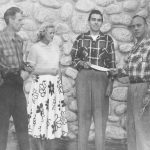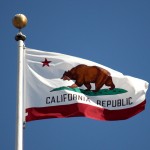Editor:
The Idyllwild Fire Protection District (IFPD) is a wonderful asset to our community. I support IFPD. One reason is because locals elect the board and therefore we have resources here that do not exist in other small, rural towns.
Regardless of what some may say, IFPD is better suited for this community than what any other agency would provide. However, it could be better.
The title of the recent editorial, “Intimidation,” is an example because the IFPD board has had to respond
to accusations of intimidation in a previous grand jury report.
If only one person is intimidated that is one person too many. There have been
attempts at enforcing “no on-duty in uniform” attendance at political meetings but the majority of the board has refused to acknowledge the violation.
State law reads, “No officer or employee of a local agency shall participate in political activities of any kind while in uniform.” GC 3206.
So while in uniform the “bully patrol” is prohibited to participate by law, which the board has sworn an oath to uphold.
At the 2011 candidate forum the uniformed firefighters, while getting paid,
attended in the same fashion. There is an argument that “attendance” is not participation. Then why does each and every candidate acknowledge audience participation by their “attendance” alone at political forums?
Even if intimidation is not intended, why continue if that is the perception by even one citizen? The board allowing it to continue could be a violation of the Brown Act which states, “The legislative body of a local agency shall not prohibit public criticism of the policies, procedures, programs, or services of the agency, or of the acts or omissions of the legislative body.” 54954.3(c).
Does even one member
of the public feel prohibited to express their opinion freely because of several large, intimidating, uniformed employees lining the entrance and exit of a meeting?
We all love the work our firefighters do. If the board would enforce these laws on behalf of the public the Town Crier editor would have never written the recent article. But the IFPD board chooses not to do so.
It is not the chief’s fault that he led his firefighters into a political meeting. It is not the firefighters’ fault. They are just doing what the board allows them to do, whether it is legal or not.
Charles Schelly, DC
IFPD commissioner










